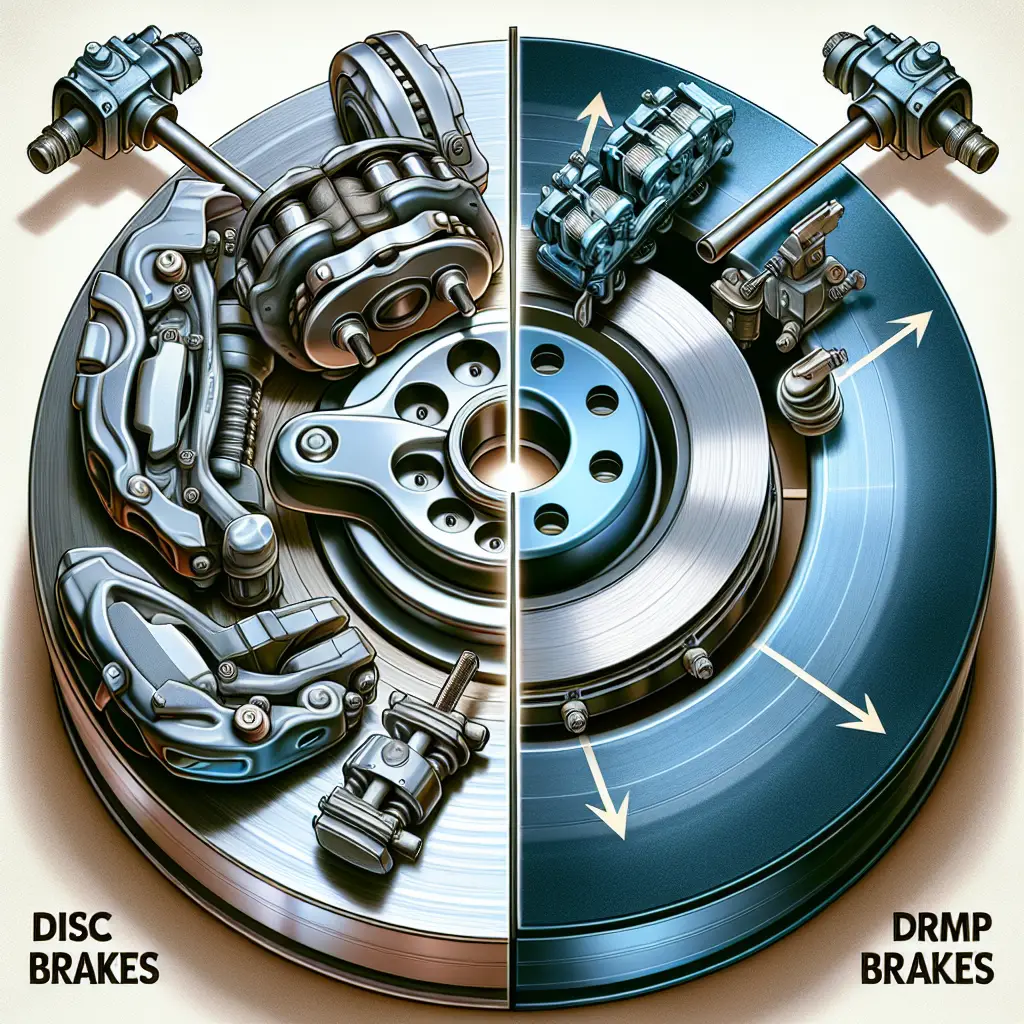Title: Which Brakes Are More Important? Understanding the Role of Front and Rear Brakes in Your Vehicle
Braking is a vital part of driving – it’s the feature that makes the sheer momentum of a heavy vehicle controllable and serves as a frontline defense in avoiding collisions. But have you ever wondered if all brakes are created equal? There’s been a longstanding debate among automotive enthusiasts about which brakes are more important: Front or rear? While this might seem like a straightforward question, the answer is not completely black and white.
Let’s delve into the world of automotive brakes and shed some light on this subject.
The Importance of Front Brakes
In the majority of braking situations, the front brakes play a more significant role than the rear ones. This is due to weight transfer, a phenomenon occurring when a vehicle decelerates, causing the vehicle’s weight to shift towards the front axle. As explained by Car and Driver, this weight transfer increases the downforce on the front tires, thereby increasing their grip, which in turn allows the front brakes to take on more of the braking load.
The front brakes are typically larger than the rear brakes for this reason. They’re designed to handle higher temperatures and greater forces, thus they have a more substantial duty compared to their rear counterparts in slowing down or stopping a car. It’s not just their size that matters; braking systems are often designed with a specific bias toward the front.
The Role of Rear Brakes
While front brakes carry the majority of the braking force, rear brakes are crucial for vehicle stability. If the front brakes did all the work, the rear of the car could become unstable and swing out during braking, especially on wet or slippery roads. Therefore, rear brakes assist by providing necessary stopping power while keeping the vehicle stable. Moreover, in vehicles equipped with anti-lock braking systems (ABS), the rear brakes play a critical role in preventing wheel lock-up.
Drum Brakes vs. Disc Brakes
Many modern vehicles come with disc brakes on all four wheels, but some still use drum brakes on the rear wheels. The drum brake system is an older technology that is generally less expensive to manufacture and quite effective for the rear wheels’ less demanding role. However, disc brakes are known for better performance, particularly in wet conditions and under high stress, which is why they are preferred, especially for the front axle.
The Full Picture
Arguing that one set of brakes is categorically more important than the other is perhaps missing the point. Both front and rear brakes are designed to work in unison to stop the vehicle effectively and safely. A car with powerful front brakes but weak rear brakes, or vice versa, would offer suboptimal performance and could even be dangerous.
In terms of maintenance, this means you shouldn’t ignore the condition of your rear brakes just because they carry a lighter load than the front brakes. Regular inspections and maintenance are crucial for both sets of brakes. Neglecting your rear brakes can lead to reduced performance and potential brake failure, so it’s essential to keep them in top condition just as you would with the front brakes.
The Verdict
When it comes down to it, the front brakes are subject to more significant stress during a typical braking scenario, making them crucial for the primary task of decelerating the vehicle. However, this doesn’t make the rear brakes any less important to the overall safety and handling of the car.
Remember, braking is about balance. Effective braking depends on the synergy between front and rear brakes. For the average driver, it’s less about which brakes are more important and more about ensuring that the entire braking system is functioning correctly. A well-maintained car with proper brake balance is far more important than focusing on one set of brakes over the other.
In conclusion, next time when you visit your mechanic for a routine check or find yourself in a discussion about brakes, keep in mind that both front and rear brakes are crucial to your safety on the road. They may perform different functions and carry different loads, but they are equally deserving of your attention and care.
As car owners and responsible drivers, prioritizing complete brake system care, rather than focusing on one over the other, will ensure that your rides are smooth, safe, and securely anchored, no matter where the road may take you.
Further Resources
For a deeper dive into the mechanics of braking systems, check out the following resources:
- Car and Driver – A wealth of articles on brakes and other automotive systems.
- Explain That Stuff – Insightful explanations into how different types of brakes work.
- National Highway Traffic Safety Administration (NHTSA) – For information on the anti-lock braking system and safety standards.
By keeping informed and proactively maintaining your vehicle’s brakes, you’ll be better prepared for whatever your driving experience throws your way. Remember, smart driving starts with smart car care – and that begins with understanding which brakes are more important.

